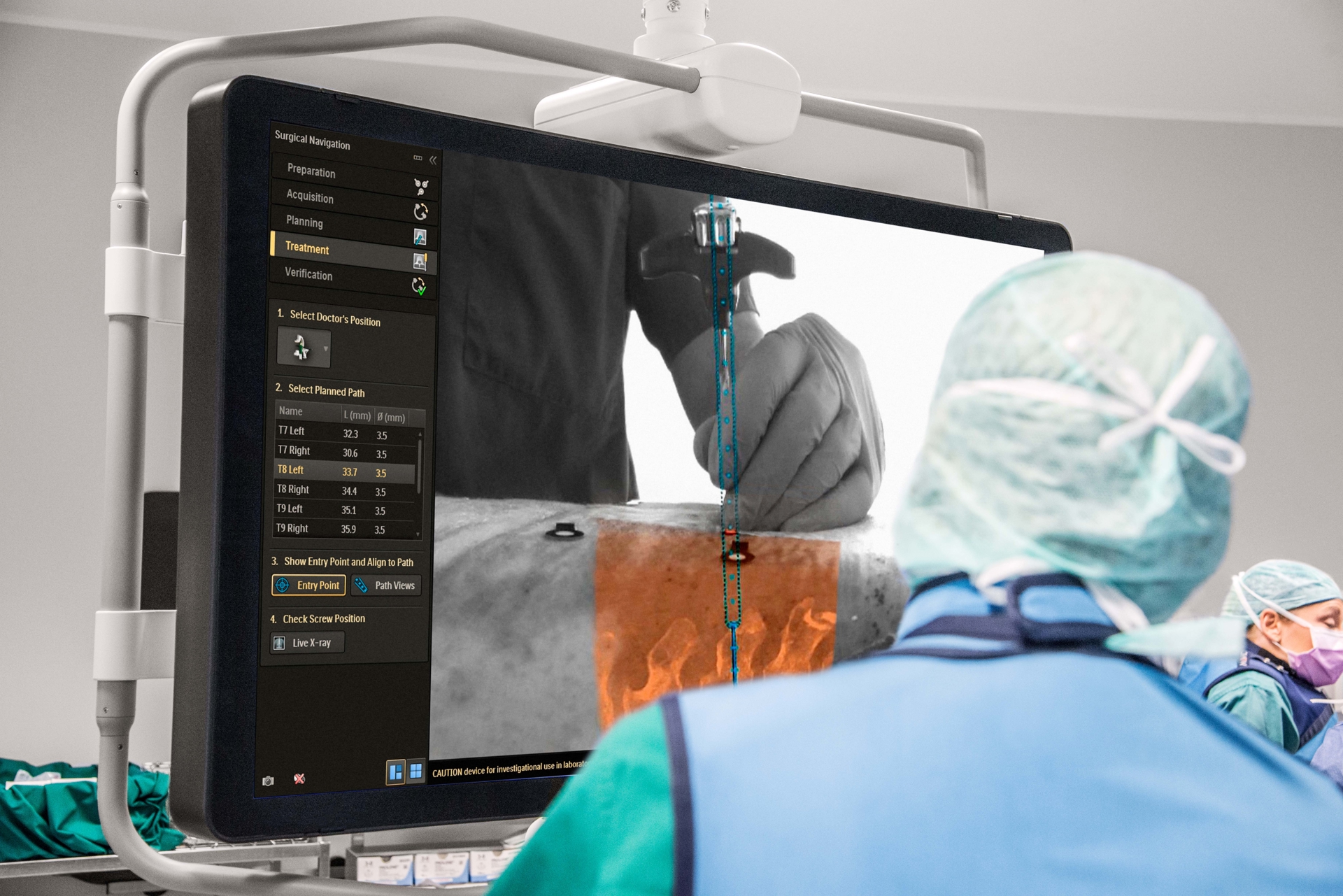Augmented Reality and smart instruments in surgical navigation
Within Karolinska’s innovation partnerships with Philips, new technology is being developed based on the needs that neurosurgeons encounter in their daily work. AR and smart instruments are now used in surgical navigation for increased precision.

Among other things, the joint innovation team has developed navigation support allowing the surgeon to “see” what the patient looks like on the inside without creating large incisions.
Through so-called augmented reality, AR, an image of the inside of the body is recreated. The new technology enables us to place spinal implants more accurate. Initially, developed technology has been used in spine surgery but is now also explored for other types of surgery, for example to remove tumors from the brain. The team at Karolinska is working on more projects with focus on surgical precision, such as smart instruments.
Results – a selection
- Spine surgery. Karolinska performed the first clinical use of augmented-reality surgical navigation technology for image-guided spine surgery ever. Surgical precision has increased for the studied areas, and it is now possible to carry out surgery that patients can benefit greatly from, but which was not previously possible. Patients can get shorter rehabilitation, faster return to work and fewer injuries. By avoiding re-operation, we also avoid 15 extra care days.
- The radiation dose decreases because video images are used for navigation during surgery. Patients are exposed to a minimal radiation dose and the surgical staff are not exposed to any radiation at all.
- Broadened use. The AR equipment is being used more frequently for spine surgery and the technology is now being developed to investigate possibilities in cranial surgery. The Smart Instruments project has investigated possibilities in brain tumors and blood clots in stroke.
- New collaborations. The team at Karolinska is now expanding the work to nearby areas and entering collaborations with new partners, including with the Royal Institute of Technology in Stockholm and technical universities in Delft, Eindhoven and Pisa.